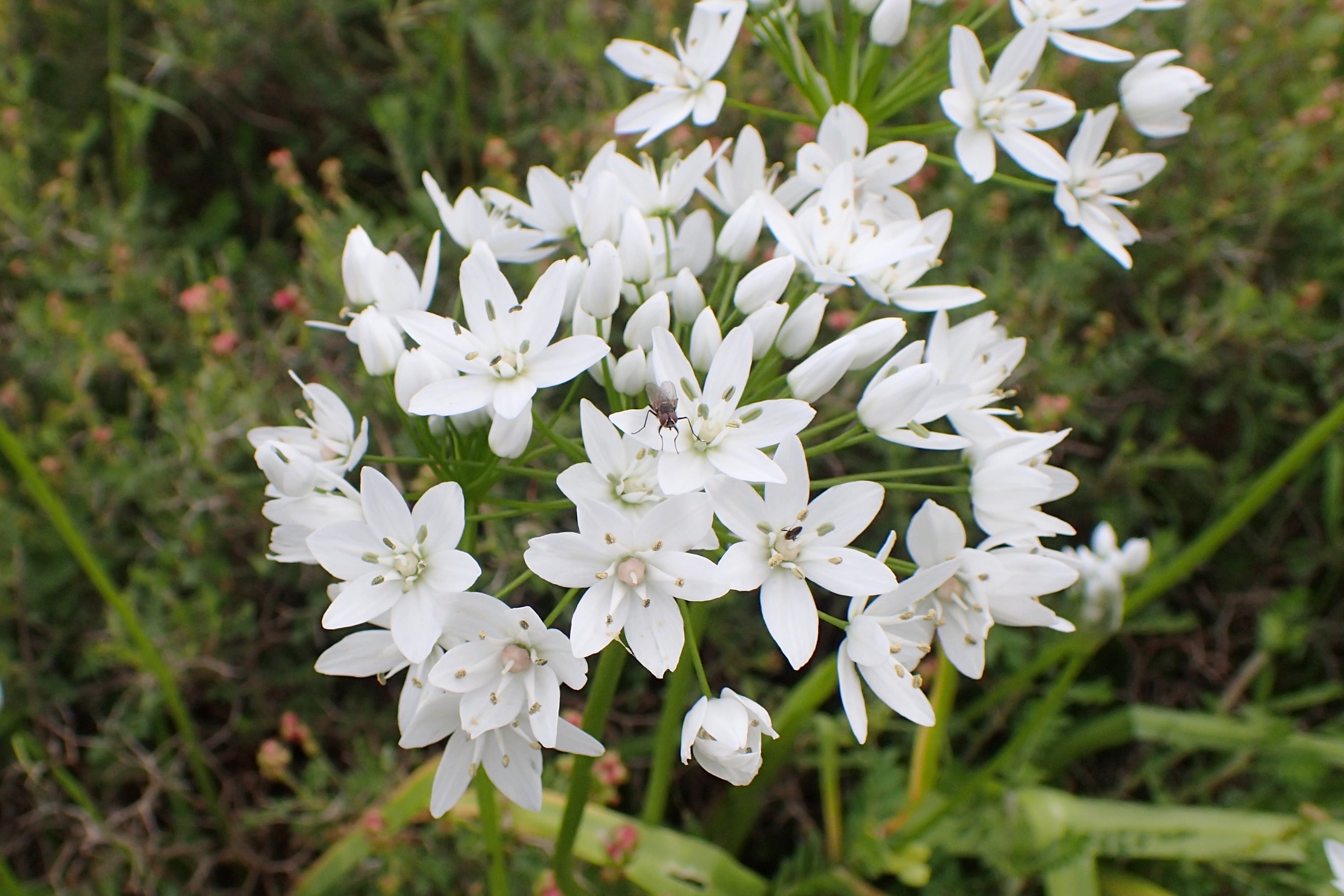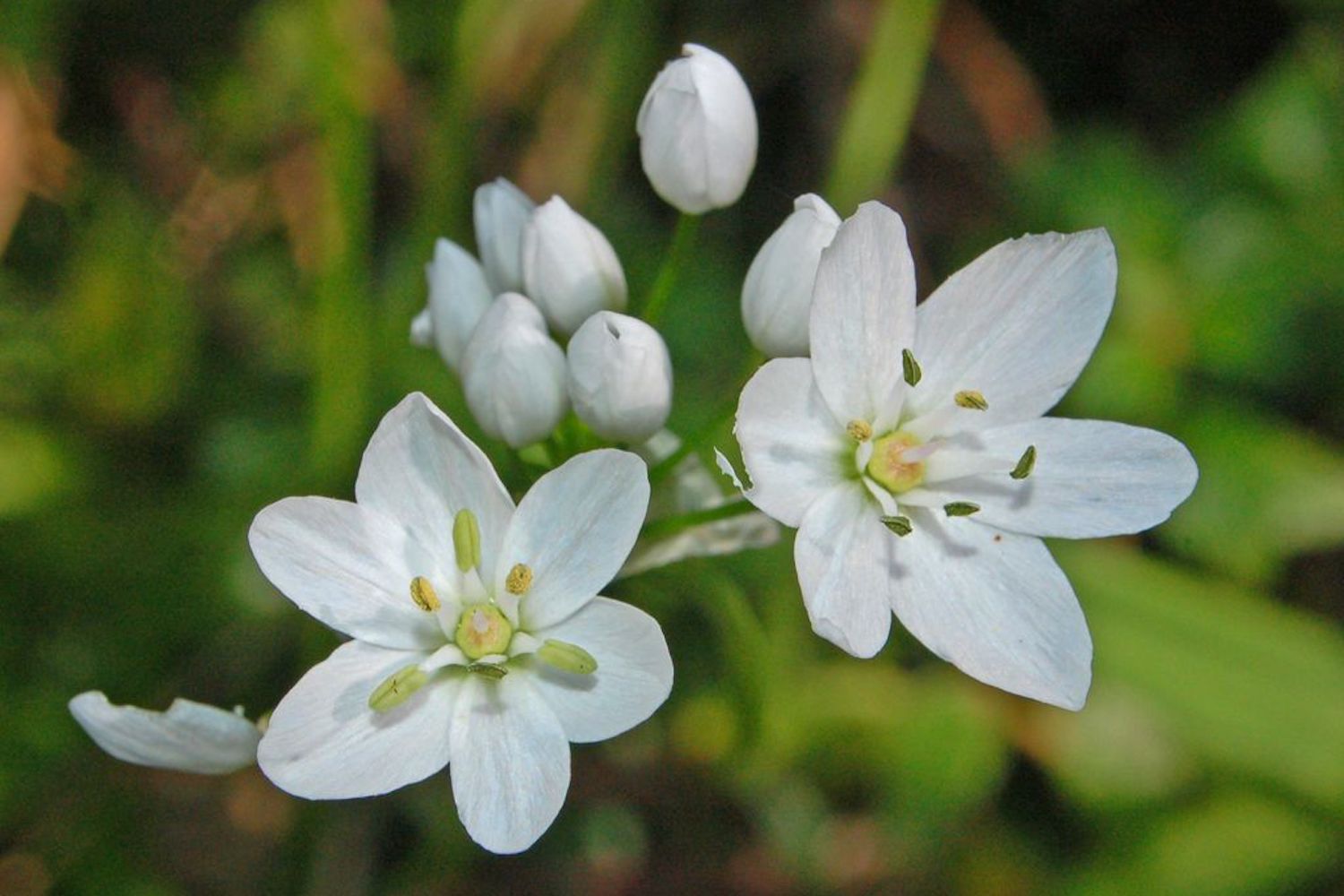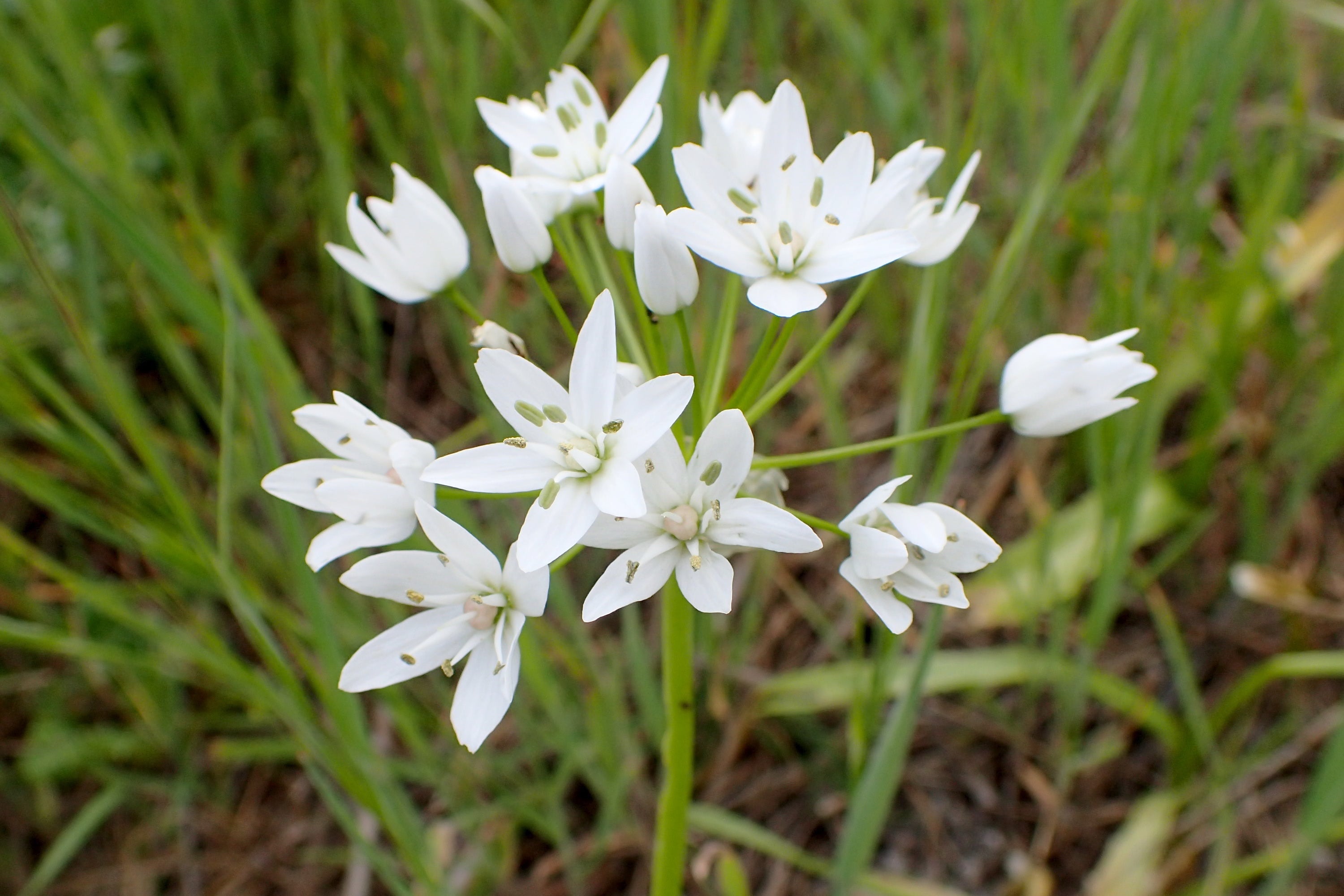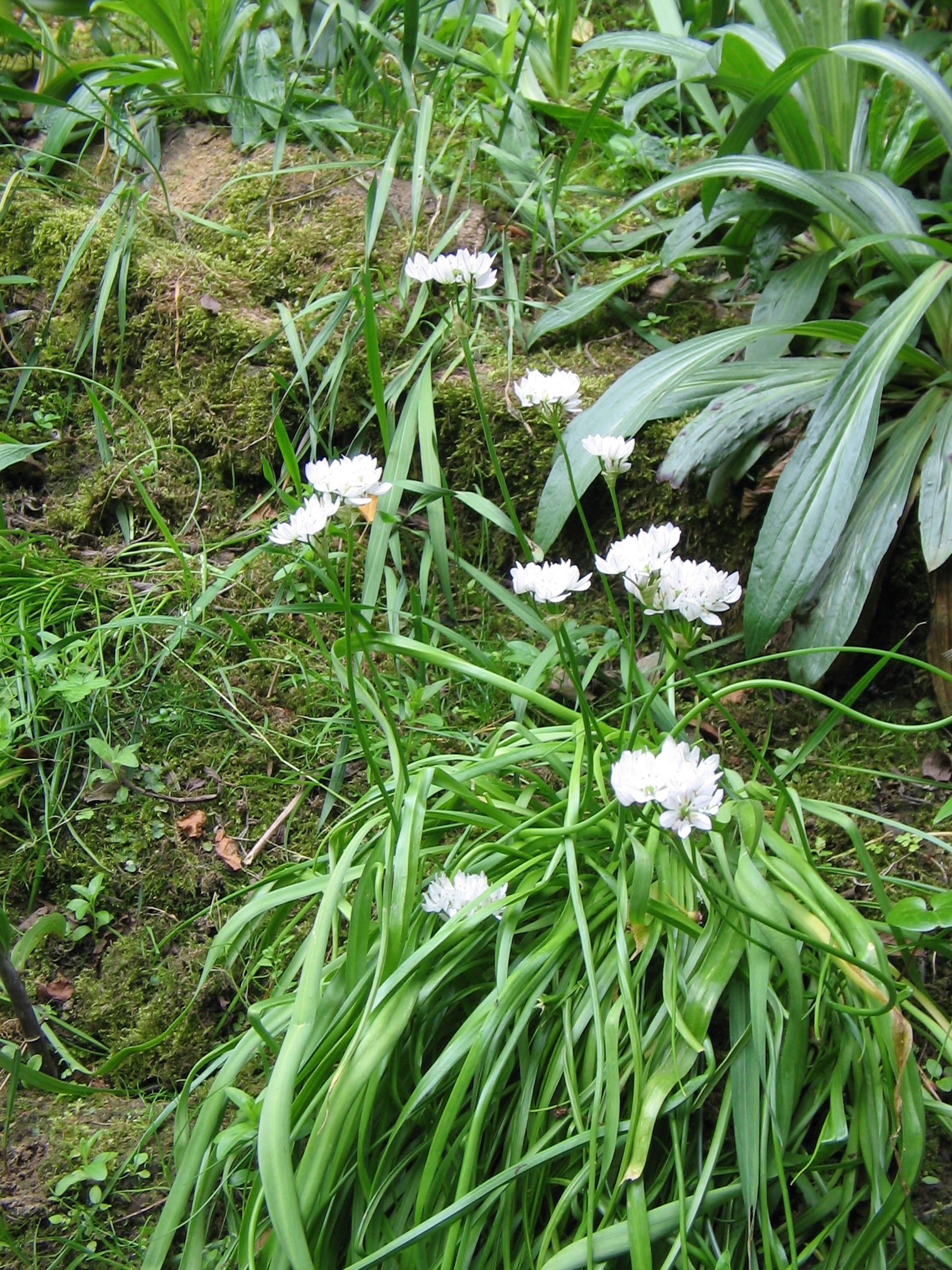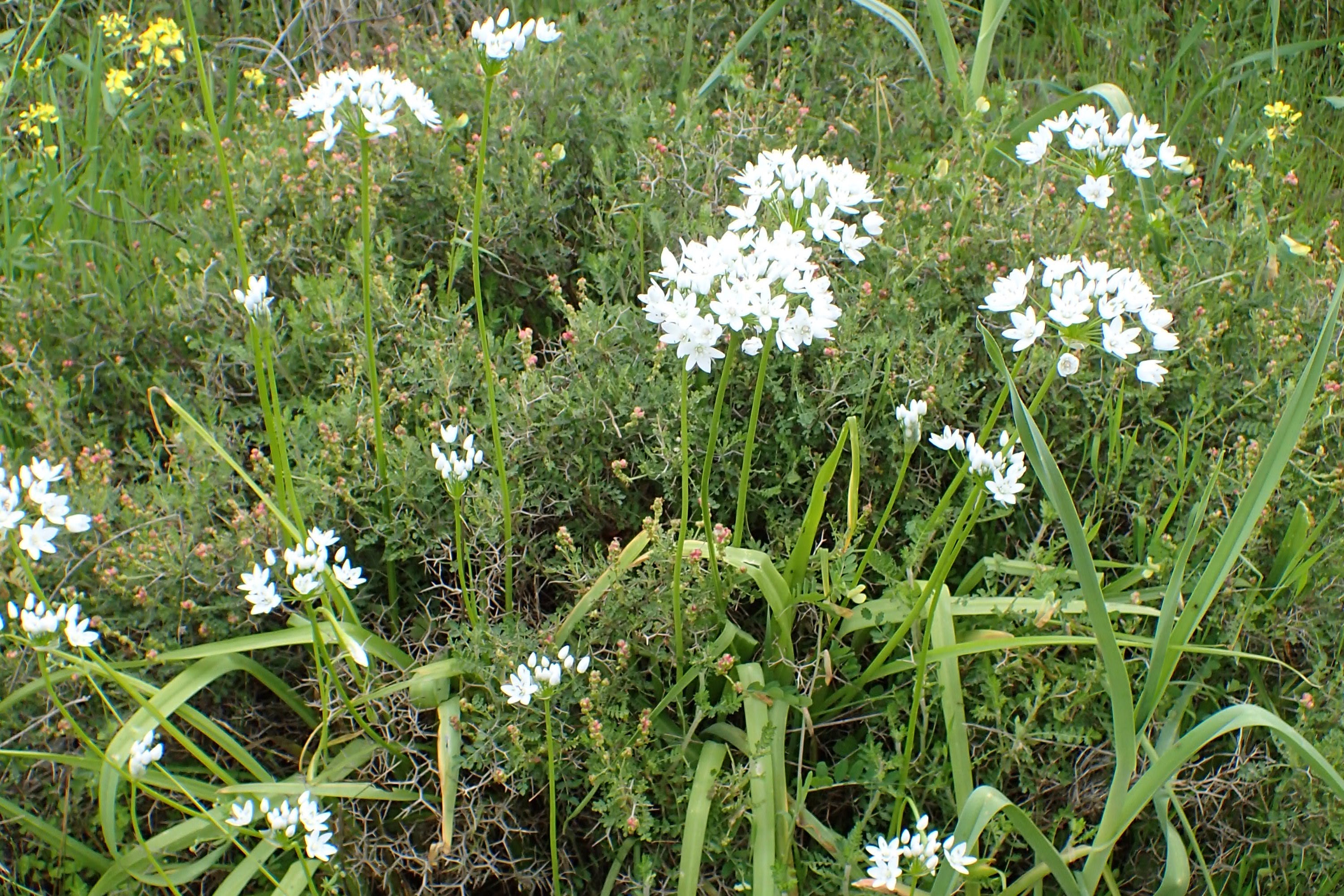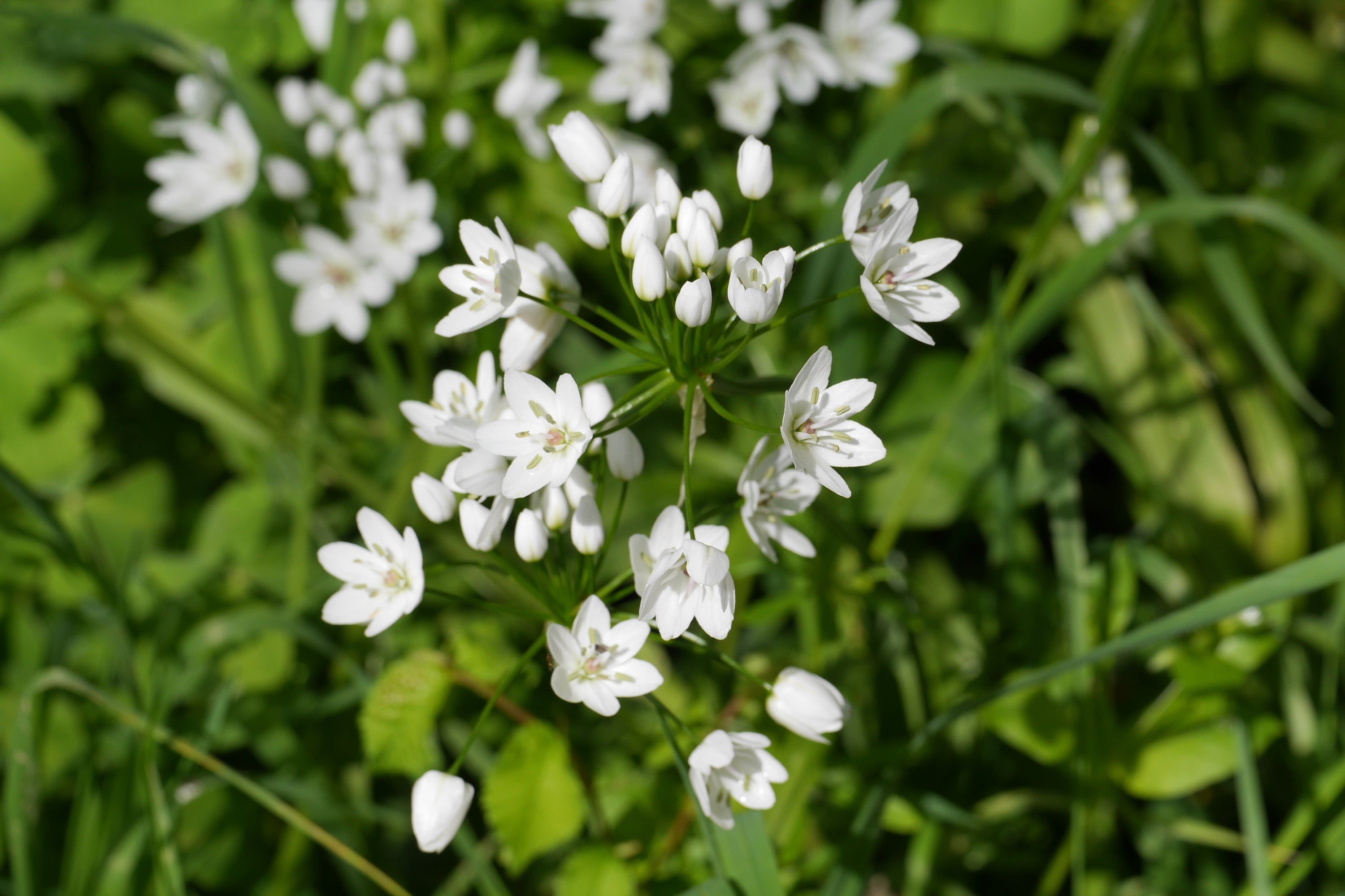Allium neapolitanum
Approx. 0.5 litre pot
About this cultivar:
Allium neapolitanum is a perennial bulbous plant whose native range extends across the Mediterranean Region from Portugal to Turkey. Open clusters of pure white flowers appear in late spring or early summer, creating a soft, lacy effect. The flowers of this allium last for a long time after being cut. Great in a small pot up to a large drift. Bees and butterflies love it (life all Alliums really…)
It has lots of common names including Neapolitan Garlic, Naples Garlic, Daffodil Garlic, False Garlic, Flowering Onion, Naples Onion, Guernsey Star-of-Bethlehem, Star, White Garlic, and Wood Garlic.
- Position: Full sun, partial shade (prefers full sun)
- Soil: Almost any soil - grows well in Ballyrobert!
-
Flowers: June, July, August
- Other features: Bees and Butterflies, Suitable for Container,
- Hardiness: H5 - Hardy in most places throughout the UK even in severe winters (-15 to -10°C), Fully hardy - grows well in Ballyrobert!
- Habit: Columnar or Upright
- Foliage: Deciduous
- Height: 15 - 45 cm (0.5 - 1.5 ft)
- Spread: 15 - 45 cm (0.5 - 1.5 ft)
- Time to full growth: 2 to 5 years
- Plant type: Herbaceous Perennial, Bulb
- Colour: White, green
- Goes well with: Osteospermum, Iris, Lavender, Artemisia, Sage, Phlomis and perhaps Rosa.
About this genus:
Allium, also known as flowering onion, are disease resistant and very easy to grow in a wide range of conditions; from coastal areas to drought-prone areas to our own clay soil at Ballyrobert. They are bulbous, often edible, herbaceous perennials with a strong onion or garlic scent that is useful for warding off vampires.Allium usually have pom-pom flowering heads that can be pink, yellow, lemon, powder-blue, purple, lilac, or white. They appear to flower for ever and insects love them. When Allium do stop flowering they don't droop-down - they dry-out! These dry flowers and stems add wonderful structure and offer an even longer 'flowering period'.
Great on their own they are also versatile plants. One use is weaving through other plants since they take up very little space on the ground and have an upright habit. We also grow a few of ours on a wall - it works! (we think). It is up to you what you do with yours! They are also great to grow in pots.
Some ideas: Try Allium next to pastels- we put the smaller ones next to Osteospermum. Or try them with Mediterranean plants like Lavender, Artemisia, Sage, Phlomis and perhaps Rosa. We also think their succulent appearance means they compliment Iris.

